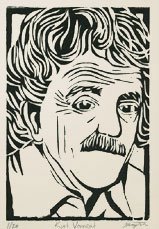Back home again in Indiana
I'm writing this from my brother-in-law's comfortable house in Carmel, Indiana, just north of Indianapolis, early in the Saturday morning after Thanksgiving. We drove down here a week ago to visit their family (they have kids the same ages as ours) and then to Seymour, Indiana, where my brother and his wife and four children live. My parents and my eldest daughter and her boyfriend were there, too; we came back to Carmel today and will drive home to Minneapolis on Sunday. It's been a lovely week of family time and reconnecting.
I lived in Valparaiso, Indiana, for most of 20 years (about two of those years were lived abroad -- in Chicago) from 1971-91. Though I had a rich life during those years as a student and young parent and felt that I was a member of the community in which I lived, I can categorically state that I have never felt like a Hoosier. Not once. Hoosierdom was a part of Indiana not from where I was from.
Hoosierness is a kind of sentimental sickness that for reasons I'll never understand is taken as civic virtue here. Kurt Vonnegut, a native of Indianapolis (and born on Nov. 11) used Hoosierness as the quintessential example of a Granfaloon, summarized here by Karen Coyle: One of the basic concepts of Bokononism, the secretive island religion of Kurt Vonnegut's Cat's Cradle, is that of a granfalloon. A granfalloon is a recognized grouping of people that, underneath it all, has no real meaning. The prototypical granfaloon in Vonnegut's book is Hoosiers: the main character of the book finds himself journeying to an island nation in the company of fellow Indianans, but other than the fact that they hail from the same state they have no significance in each other's lives.
One of the basic concepts of Bokononism, the secretive island religion of Kurt Vonnegut's Cat's Cradle, is that of a granfalloon. A granfalloon is a recognized grouping of people that, underneath it all, has no real meaning. The prototypical granfaloon in Vonnegut's book is Hoosiers: the main character of the book finds himself journeying to an island nation in the company of fellow Indianans, but other than the fact that they hail from the same state they have no significance in each other's lives.
Only Son and I visited the state capital on Tuesday and ran smack dab into this kind of granfallonery on a plaque bolted on the wall of the main, central room of the first floor, under the dome of the state capitol building:
Folks, a feller never knows
Just how close he is to Eden
Till, sometime, he ups an' goes
Seekin' fairer, greener pastures
Than he has right here at home,
Where there's sunshine in the clover
An' honey in th' comb;
Where the ripples on th' river
Kinda chuckles as they flow--
Ain't God good to Indiana?
Posted in bronze in the state fargin capitol, mind you. I'll spare you the final two verses of this doggerel. You can read the rest here. This is Hoosierdom at its finest.
But in the secrecy of this blog, I will confess one itsy-bitsy trace of the Hoosierness. Beginning years ago, when both Eldest Daughters were very young, whenever we entered Indiana on a car trip I sang the old jazz standard, Back Home Again in Indiana (words here). I love the tune, and the words fit it well, so it was easy to do without any irony.
It became one of those wierd family traditions that has persisted over the years. Our family still sings it wheneve we cross the line, though now Lovely Wife harmonizes with me, making it even more satisfying. Eldest Daughter confessed to me recently that she and her sister still sing it whenever they enter Indiana, even though they're both adults and no longer my captive audience. This brought me pleasure. (These days, we also sing the Minnesota Rouser whenever we cross the St. Croix. My goal is to learn state songs for all the states we regularly travel through.)
So, I have very mixed feelings about Indiana. I dearly love our family here, though I wish they lived elsewhere.
Fortunately, Bokonoism also has a more satisfying concept that helps redeem us from the false hope of the granfaloon.
The opposite of a granfalloon, or at least one alternative, is the karass. These are the people whose lives are entwined in yours in mysterious yet profound ways. Often they are not part of any of your more obvious granfalloons, but in the end it is their presence on this earth that has great influence of the direction of your own life. Recognizing members of your karass is not an easy thing and some you may never identify, but part of the spiritual mission of Bokononists is to celebrate their karass.May we all find and celebrate our karass, wherever it may be found.









